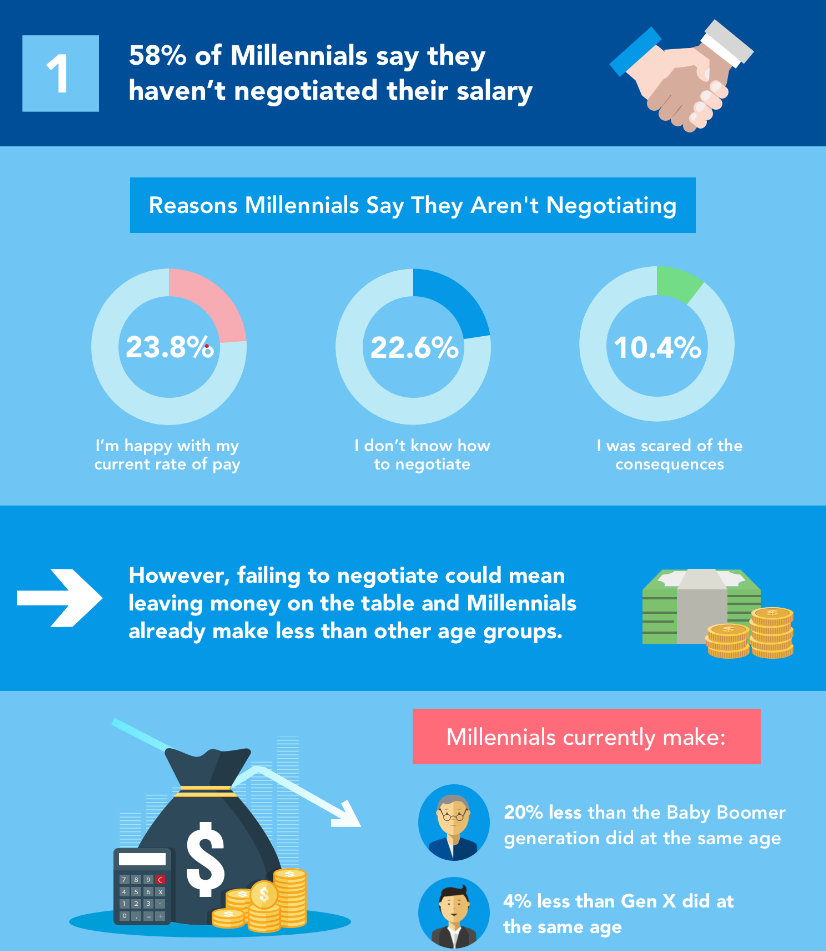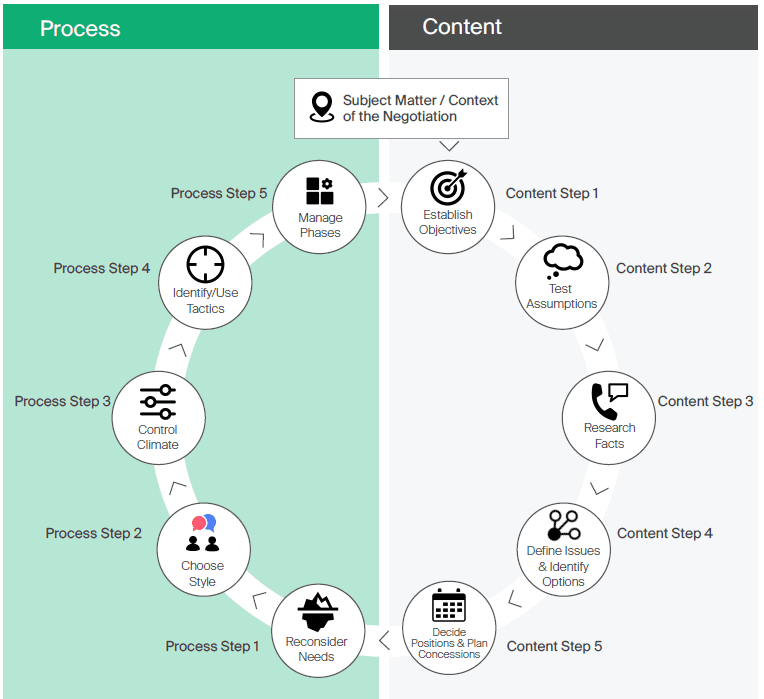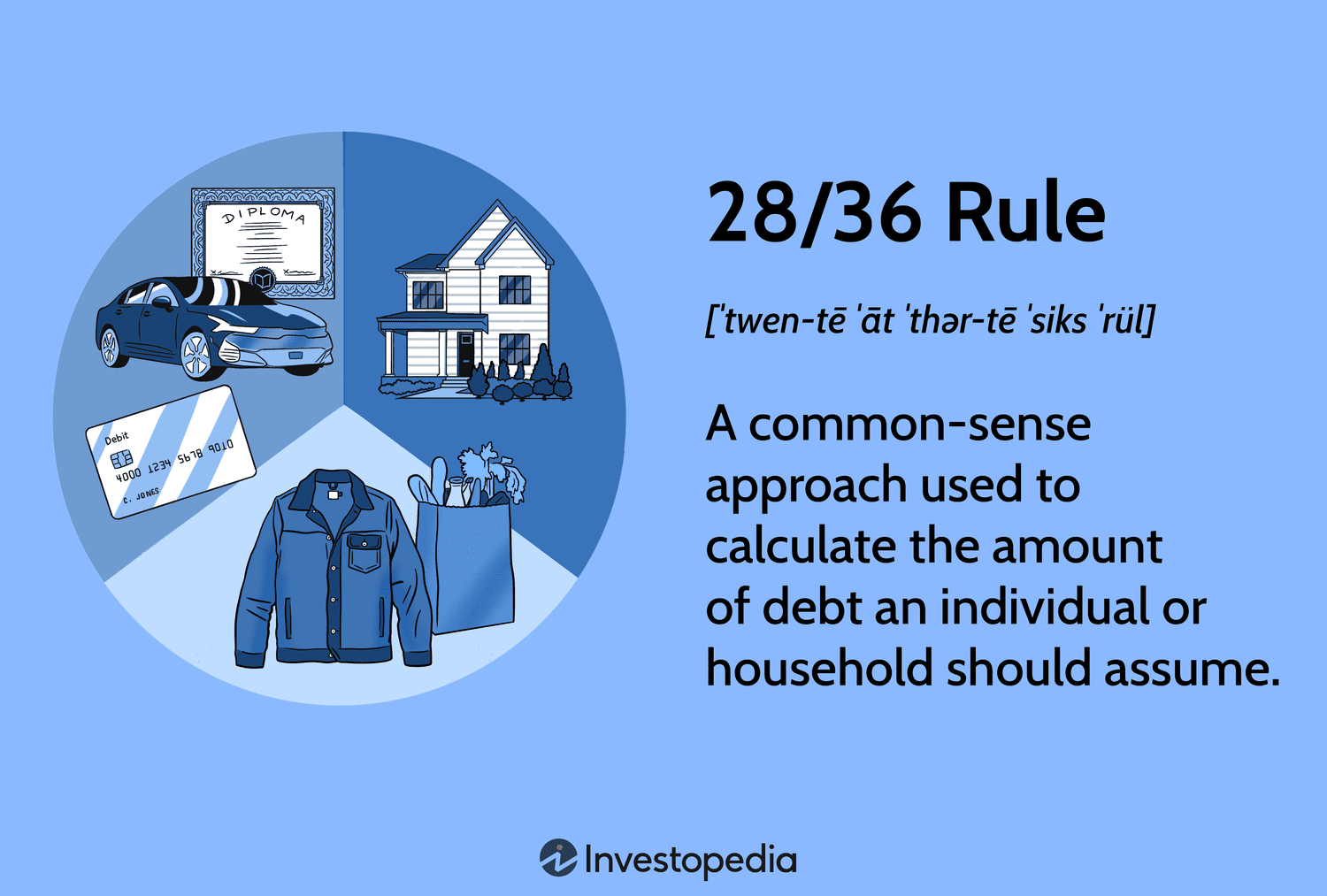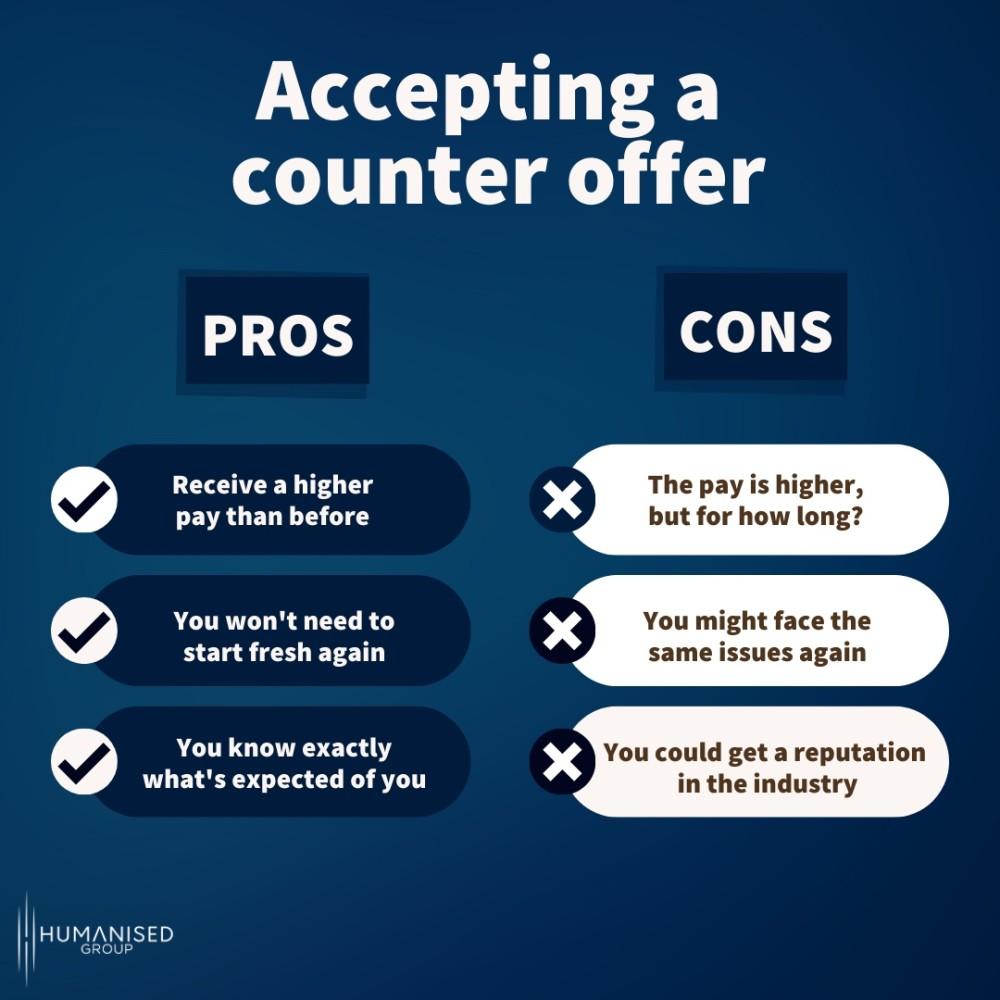Dreading the salary conversation? You're not alone! Many people feel anxious about discussing money, but it doesn’t have to be terrifying. Negotiating your salary can be one of the most daunting parts of the job process, yet it's a crucial skill that can significantly impact your career and financial well-being.
The Importance of negotiation
Did you know that negotiating your salary can benefit you? Studies have shown that employees who negotiate their starting salary see an average increase of 5-10% in their earnings over time, while those who haven't asked to be shown a 1 – 2% increase in earnings.

The unfairness of not being taught how to negotiate your salary early on. Source: LinkedIn
Successfully negotiating your salary
Learning how to negotiate offers numerous benefits, including improved communication, better relationships, and increased self-awareness in the personal life. Professionally, it provides guidance for advancement in the workplace, conflict resolution, and better decision-making. Financially, it contributes to better bargains and more favorable investment arrangements.
In business, it leads to increased profitability, stronger relationships with partners and clients and a competitive advantage. Additionally, negotiation skills boost confidence, reduce anxiety and stress, and enhances problem-solving abilities. Overall, these skills significantly improve one’s personal, professional, and financial well-being.
But it's easier said than done, right? so here's a few strategies for those of you that don't feel at ease when you have to confront a negotiation, or don't know what kind of arguments to put forward.
Negotiation strategies for the not-so confident
Changing your mindset
Negotiation should be a conversation, not a confrontation. This mindset helps reduce anxiety by framing the negotiation as a collaborative discussion rather than a battle. Approaching the negotiation as a two-way dialogue encourages open communication and mutual respect. By viewing it as a conversation, you can focus on finding a solution that works for both parties, rather than feeling like you need to "win" against the other side.
Sometimes companies fail to realize that not proactively adjusting salaries to match the value their employees provide can hurt them in the long term. This oversight can lead to higher turnover, employee alienation, decreased motivation, and eventually, reduced productivity.
This perspective not only makes the process less intimidating but also increases the likelihood of reaching a positive outcome. Remember, both you and your employer have the same goal: to come to a fair agreement that recognizes your value and contributions to the organization.

The bulk of the job is actually setting the conversation in a constructive framework: Negotiation Academy
Preparation is Key
Practice your talking points and run through various scenarios. Being well-prepared boosts confidence and guarantees you can properly communicate your case. This preparation entails researching industry norms, understanding the company's payment structure, and determining your own worth and accomplishments. You'll feel more at ease and confident throughout the negotiation if you practice your main points and reactions to probable counterarguments.
Role-playing with a friend or mentor can also help you get feedback and improve your technique. Detailed preparation can turn a nerve-racking situation into a controlled and planned conversation. Practicing the conversation at least once will give you a significant advantage. You'll know what to expect from both yourself and your employer. Ensure that your practice partner asks tough questions so you're prepared and don't draw a blank when it matters.

Dissecting salary negotitation. Source: Negotiate.org
Focus on research, not emotions.
Make use of studies and information to support your compensation case. When you negotiate based on real evidence rather than emotions, your argument becomes far more persuasive and less personal. Collect wage information from trustworthy sources such as salary surveys, compensation surveys, and online tools like Google and Pay scale. by presenting this statistics throughout the negotiation shows that your request is based on market reality rather than personal preferences.
Simply stating that your salary is not on par with the market is not enough to make a compelling case. You need arguments that highlight what your value will be to the company. One effective way to do this is to emphasize the increased level of responsibilities you are capable of handling and the potential ROI it will have for the company. Therefore, there's a strong argument to be made for the company to meet your demands.

Not the kind of aligment you want with your employer. Source: 10xascend.
Ideally, you want to build a compelling case for your salary negotiation that anyone, not just your boss, could see as strong and reasonable. Even if the company is not currently in a position to meet your desired salary, at least your case will be made, and a correction in your favor could be pending.
It's important to realize that finding talent is costly and challenging. Organizations invest significant effort in building their teams and don't want to risk losing good employees over a reasonable demand, such as a salary increase that doesn't break the bank.
Prepare for different outcomes
When you prepare for various outcomes, you recognize that not every negotiation will result in a win-win situation. Sometimes, you might need to persuade the other party to see the value in your proposal, or you may have to accept that walking away is the best option. This preparedness allows you to handle the negotiation with a clear mind, focused on achieving the best possible outcome without compromising your principles.
You need to have clear limits in your mind that you don't want to cross. Be prepared to know what you will do if "x" doesn't happen, or if it only happens partially. It's important to have a logical framework that helps you understand your red lines and the possible next steps, whether you achieve your desired outcome in the negotiation or not.
No-nos in salary negotiation:
Sometimes we might feel that we are worth more than what an employer is willing to give us. While we are with friends we might use arguments that are very effective to put them on board with your cause but that you probably shouldn't use with if you want a higher salary than they are offering to you. Arguments about cost-of-living, other people's earnings, company financials, and so on, are not the kind of arguments that will resonate to employers or hiring managers.
Argument 1: "Someone is paid more"
It's understandable to feel that others are getting a better deal somewhere, but that doesn't automatically grant you the right to the same salary. You might not know the factors that went into deciding other people's salaries, or why people in different regions earn more for the same job.

A recognisable feeling. Source: Architecture Social.
Moreover, constantly comparing yourself to others doesn't look great. Your value should be justified by other means, such as your accomplishments, skills, and contributions.
Argument 2: "Cost-of-living"
Using the cost-of-living as the sole justification for a salary increase doesn't effectively make your case. While employers are aware that this is a factor, they generally set their salary ranges with this in mind. It's typically frowned upon to base your request for a higher salary on the cost-of-living alone.
Principally, it shouldn't be the employer's responsibility to finance your standard-of-living because this need could potentially escalate indefinitely. If that argument were valid, you could continually claim that you can't make ends meet, and the employer would have to keep raising your salary without limit.
Of course, there's a middle ground, and employers don't want their employees struggling to make a living. However, be cautious with this argument as it won't significantly help your cause. Focus instead on your accomplishments, skills, and contributions to the company.
Argument 3: "I have a mortgage"
Even if you're facing a challenging situation, you shouldn't pass the consequences of certain personal decisions onto your employer. Arguments like "I need to pay for my kids' school" or "I have a lot of expenses" aren't valid reasons to justify a salary increase.

Before incurring in too much debt and going to your employer for rescue, make sure you are doing everything you can to manage your finances. Source: Investopedia.
Employers also need to be mindful of any imbalances created within the team. If they grant you a higher salary because you have a mortgage, they would need to honor similar requests from others in the company facing similar situations. This could lead to an unsustainable precedent.
Instead, focus on presenting arguments based on your professional contributions, skills, and accomplishments when negotiating for a salary increase
Argument 4: "The company is doing well"
Ultimately, a job is sustained by a contract between two parties, and it's during the negotiation and initial contract signing that all factors should be considered and proposals put forward. It's not appropriate to later request a share of profits simply because the company is doing well, especially if this wasn't initially outlined in the contract.
Similar to previous points, this argument doesn't directly reflect your individual value, so it shouldn't be a primary factor in salary negotiations.
Argument 5: "They are offering me more"
Using an external job offer to leverage a counter-offer is a common practice in the workplace, but that doesn't make it the best approach to getting what you want.
Even if it has worked before, it can create misalignment between you and your employer. If your employer agrees to pay you more out of fear of losing you, it implies they were willingly underpaying you before. This sets a precedent where other employees might do the same, bringing in external offers to negotiate higher pay, and it risks the situation repeating itself in a few months.

Weigh the pros and cons when leveraging your negotiating power. Source: Humanised Group.
Additionally, this tactic doesn't present a compelling argument for your value beyond the fact that another company is willing to pay you more. The market fluctuates, and employers can't react to every change in market salaries. While this strategy might sometimes work, it often leads to misaligned interests, resulting in employees leaving or being let go.
Argument 6: "I speak many languages"
The fact that you speak several languages is not relevant to your employer unless it is specifically part of your job and was not initially factored in. This applies to any other skill you might have, such as knowledge of HTML when you're in a Sales role. If these skills don't help you perform better in your current role, they won't be effective negotiation tactics.
Similarly, coming from a renowned school doesn't carry much weight unless it translates into noticeably better performance. Skills and credentials need to be directly applicable to your job to be valuable in a salary negotiation.
Conclusion
As a rule of thumb, avoid pushing forward arguments that are generic and don't advance the cause of the company as well as your own. Seek alignment with your employer by focusing on arguments that revolve around you and the company, not your personal situation. Emphasize your value, skills, and dedication. If you have data to back up your claims, all the better. This approach will give you a strong standing to successfully negotiate your salary
In short, negotiating your salary, like many other things, is not a black-and-white issue. Strategies that work in one place might not be effective in another. Different cultures may be more receptive to certain tactics while the same tactics might not be acceptable elsewhere. Additionally, your personal skills as a negotiator will significantly influence your success. Therefore, the better you prepare, the greater your chances of success, especially if you are not a natural negotiator.
Prosperity
If you are seeking a job in digital or need assistance with your recruitment efforts, check out our website!
If you want to know more about the recruitment process at Prosperity get in touch!
Moreover, if you are looking for guidance on salaries, download our 2024 Salary Survey!




